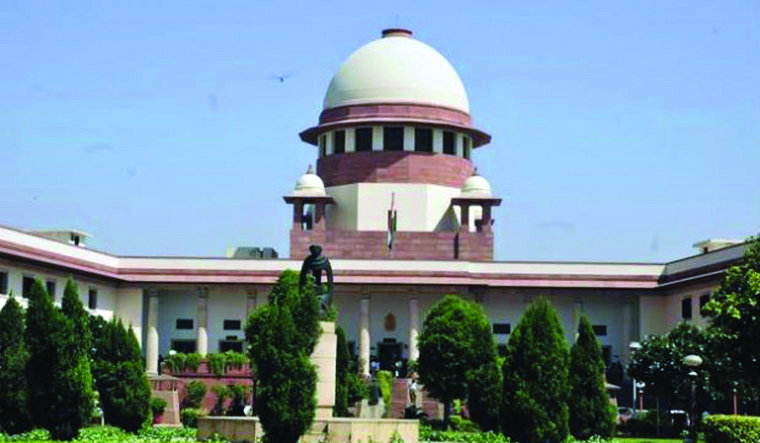How does it matter for people whether AMU is a minority institution or not: SC

New Delhi: How does it matter for people whether the Aligarh Muslim University is a minority institution or not when it has continued to be an institute of national importance without the minority tag, the Supreme Court said on Thursday as it underlined that the intent of Article 30 of the Constitution is not to “ghettoise the minority”.
Article 30 deals with the right of minorities to establish and administer educational institutions.
Grappling with the hotly debated issue of minority status of AMU, the apex court also deliberated upon what would be the impact on the 2006 Allahabad High Court verdict striking down the provision of the 1981 amendment Act by which the university was accorded the minority status, if the bench were to hold that S Azeez Basha versus Union of India case was wrongly decided. A five-judge constitution bench of the top court had in S Azeez Basha versus Union of India case in 1967 held that since AMU was a central university, it cannot be considered a minority institution.
“Without the minority tag, the institution has continued to be an institution of national importance. How does it matter for the people whether it is a minority institution or not? It is only the brand name, AMU,” observed the bench, also comprising Justices Sanjiv Khanna, Surya Kant, J B Pardiwala, Dipankar Datta, Manoj Misra and Satish Chandra Sharma.
Advocate Shadan Farasat, appearing for one of the petitioners favouring minority status of AMU, said until the Basha judgement came, the varsity was considered as a minority institution.
“Basha (judgement) came. 1981 amendment sought to undo it. Thereafter, it has been litigated through and there has always been a stay, except from the reservation aspect,” he said. A minority institution has the liberty of not granting quotas for Scheduled Caste, Scheduled Tribe, and OBC candidates.
The Centre, in a recent submission before the Supreme Court had said minority educational institutions are not required to implement the reservation policy under Section 3 of the Central Educational Institute (Reservation in Admission) Act, 2006 (as amended in 2012).
“So, really speaking, today, because of the operation of the status quo order of your lordships on the 1981 amendment, it continues to be a minority institution,” Farasat argued,
adding, if the apex court upholds the judgement delivered in Basha case, AMU will become a non-minority institution for the first time.
While hearing some pleas challenging the high court’s 2006 verdict, the apex court had in its order noted that
the counsel for AMU undertakes that they will not implement 50 per cent reservation for Muslims in admission.
“As regards all other matters regarding appellant institution, status quo will be maintained from the filing of the writ petition before the high court,” the apex court had said in its April 2006 order which Farasat referred to.
During the hearing on the vexed question for the third day on Thursday, Farasat said when it comes to women’s education, the existence of minority status of AMU is very relevant and, if AMU ceases to be a Muslim minority institution, it may hamper the higher education of Muslim women.
“Muslim women are studying everywhere. Let’s not belittle them,” Solicitor General Tushar Mehta said.
Farasat said AMU’s minority status and women education have gone together and have fostered education, particularly among Muslim women.
“The fact that I am a successful minority institution can’t be the basis for making me move out of the minority status,” he contended.
He said a minority institution can be an institute of national importance and it is not as if only the majority can establish institutes of national importance.
During the day-long arguments, the CJI observed, “The object of Article 30 (of the Constitution) is not to, if I may use the expression and don’t take it otherwise, is not to ghettoise the minority”.



